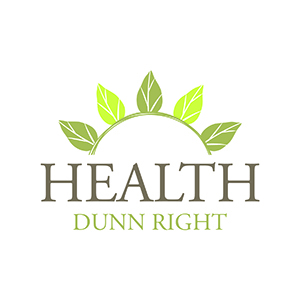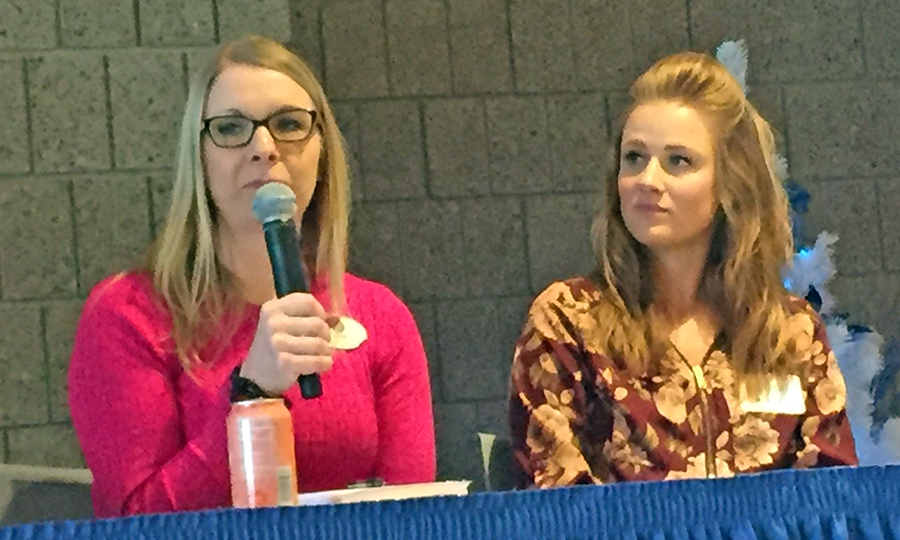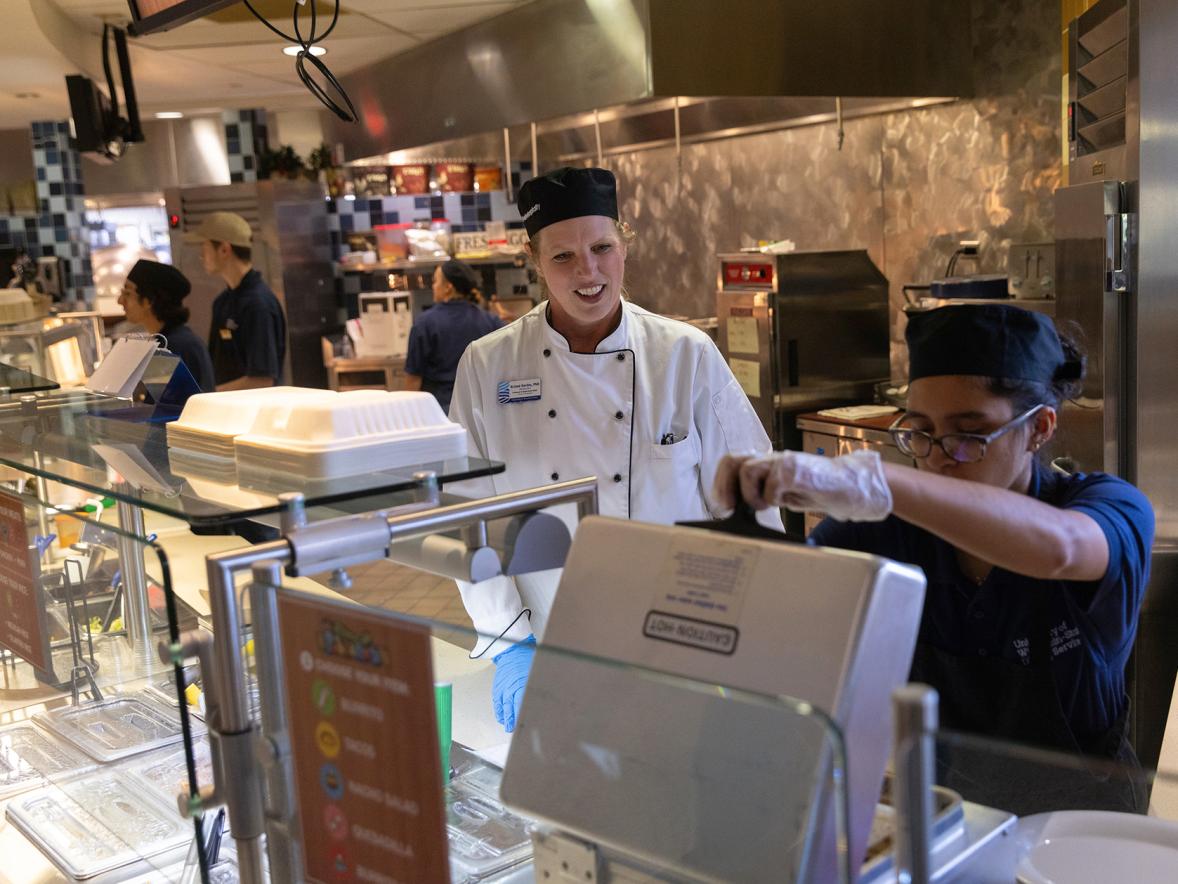With finals approaching and the holidays just around the corner, many University of Wisconsin-Stout students might be feeling stress.
Although stress is a normal part of life, it can lead to students feeling anxious and suffering from anxiety, the number one reason many students visit UW-Stout’s Counseling Services.
 “The fall semester is a very busy time for us,” said Sami Hamann, a licensed counselor. “Students are transitioning from home. The academic expectations are high. Relationships are new with friends and maybe a significant other.”
“The fall semester is a very busy time for us,” said Sami Hamann, a licensed counselor. “Students are transitioning from home. The academic expectations are high. Relationships are new with friends and maybe a significant other.”
Add the extra studying as they prepare for exams — finals week is Monday, Dec. 16, to Friday, Dec. 20 — and students can start to have anxiety, Hamann said.
To help combat anxiety, Hamann suggested students get enough sleep, usually seven to eight hours a day, and eat a balanced diet. “Balance, balance, balance,” Hamann said. “You have to study but take breaks and spend time with friends. Use meditation and deep breathing techniques and write down how you are feeling.”
If students are feeling overwhelmed they can seek help at Counseling Services, fourth floor Bowman Hall. Counseling is free weekdays from 8 a.m. to 4:30 p.m. In the 2018-19 academic year, Counseling Services served more than 800 individual students.
Hamann encouraged students and faculty to watch for signs of anxiety, including isolation and avoiding social events. “Just asking how someone is can help,” Hamann said. “We will tell students if they are worried about friends to ask open-ended questions and get more information and actively pay attention.”
Hamann was a featured panel speaker in early December at the Ripple Effect, held at the Memorial Student Center. The conference was sponsored by the Initiative to Create the UW-Stout Center for the Study and Promotion of Health and Wellbeing to increase awareness and reduce stigma around suicide and behavioral health.
Other panel members included KT Gallagher, Dunn County Health Department; Wendy Winger, Dunn County Department of Human Services; Tyler Miller, Menomonie school district school psychologist; and Rachel Funk-Johnson, owner of Happy Apple Therapy in Menomonie.
During a community health survey of Dunn County residents, mental health was the number one concern in the community. More than half reported mental health care was a weakness in the county because of a lack of providers, lack of access to care and long waiting lists for providers. The stigma of mental health issues also is a concern, Gallagher noted.
In Menomonie High School, about half of the students surveyed for the Youth Risk Behavior Survey reported anxiety. The district is embedding programs to help students recognize high stress and to improve social well-being, Miller said. Also, if students have one adult they feel comfortable talking to, they report feeling less stressed. “There is huge power with relationships,” Miller said.

Funk-Johnson, a May 2018 UW-Stout graduate with a master’s degree in clinical mental health counseling, also is co-chair of Health Dunn Right mental health action team. The team has 30 members committed to advocating for mental health education.
“There are a lot of individuals in the county who do not understand the resources out there for them,” Funk-Johnson said. “We provide resources and people get healthy, and they spread that. We have the ability to help people get better. It can be as simple as looking someone in the eye and ask, ‘How are you doing?’”
UW-Stout center
Health Dunn Right is supported by the Initiative for the Creation of the UW-Stout Center for the Study and Promotion of Health and Wellbeing. The center will establish partnerships that increase opportunities for students to engage in applied learning and research. It will serve to develop relationships that promote the accessibility and visibility of UW-Stout programs of study to community constituents and potential partners.
The idea for a health center at UW-Stout started about three years ago with Bob Salt, dean of the College of Education, Hospitality, Health and Human Sciences. The center could provide programs, conferences, workshops and other events for those in the health and wellness fields to help continue their learning. Yearly conferences could help the public learn more about health care options, including affordability and availability.
Faculty and students could conduct research and work with the public. An online giving page has been created to help establish the center, which is expected to be self-sustaining through grants and/or private funding.
Those interested in volunteering with Health Dunn Right or being part of a coalition team may contact Linse at linsec@uwstout.edu or 715-232-3285.
###
Photos
Sami Hamann
Health Dunn Right logo
UW-Stout alumna Rachel Funk-Johnson speaks at a panel on mental health, while panelist Sami Hamann listens.







